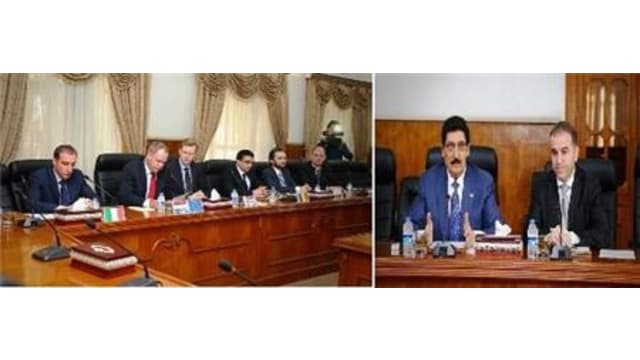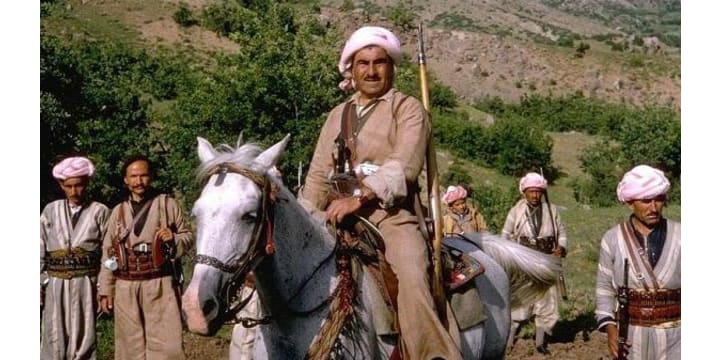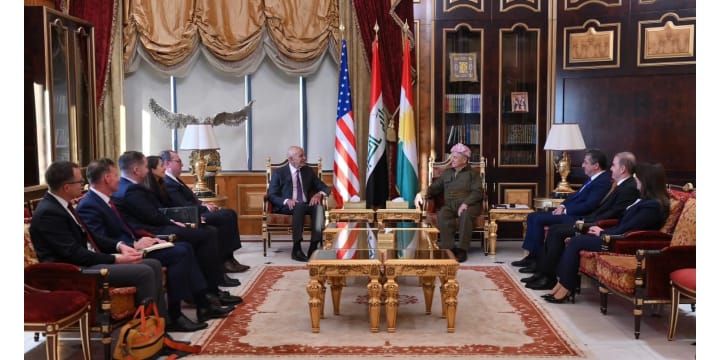
EU delegation congratulate Barzani and Peshmerga for liberating Sinjar
A European Union Consulates to Kurdistan visited the political bureau of the Kurdistan Democratic Party for talks with Fadhil Mirani and Hemin Hawrami, head of KDP’s Foreign Relations Office, in order to resolve domestic disputes in the Kurdistan region and other developments.
During the meeting, Mr Mirani, secretary of the political bureau, briefed the current status in the region and said that after the 2003 liberation in Iraq, the KDP has aspired to achieve a democratic and federal Iraqi state. He said that elections were installed and the general public has rights to cast their votes but the leaders in Iraq were not able to adhere to any principles.
Mr Mirani said that the Kurdish people and Kurdistan in Iraq are seen as “second class citizens” and it is unacceptable in the new Iraq. On the other hand, he reflected on the reforms of Iraq’s Prime Minister, Haidar al-Abadi, that his planes are to remove Kurds and to reduce the number of Sunnis in the federal government.
On the situation of Kurdistan, Mr Mirani pointed out the problems and obstacles facing the reigon including the war against terrorist organisation Islamic State, budget cuts by the Iraqi government adding that there is knowledge the central government allocates funds to Anbar and Mosul that are controlled by ISIS. He also said that while the Peshmerga are fighting against ISIS militants, their budget has also been suspended
The KDP believes that is necessary to resolve issues with all political parties, on the matter of tensions in Suleymania, Mr Mirani said the only way forward is to effectively use dialogue but without accepting any unprecedented conditions.
For their part, the EU delegation thanked the political bureau for the meeting and offered their condolences to the victims for the events occurred in Suleymania following riots and violent demonstrations. They also congratulated President Massoud Barzani for liberating Sinjar and the courage of Peshmerga in achieving this victory and wishing for peace and prosperity to the Kurdish people.
The EU representatives consisted of Consul Generals to Erbil from the Netherlands, Romania, Italy, Germany, France and the United Kingdom deputy Consul General

